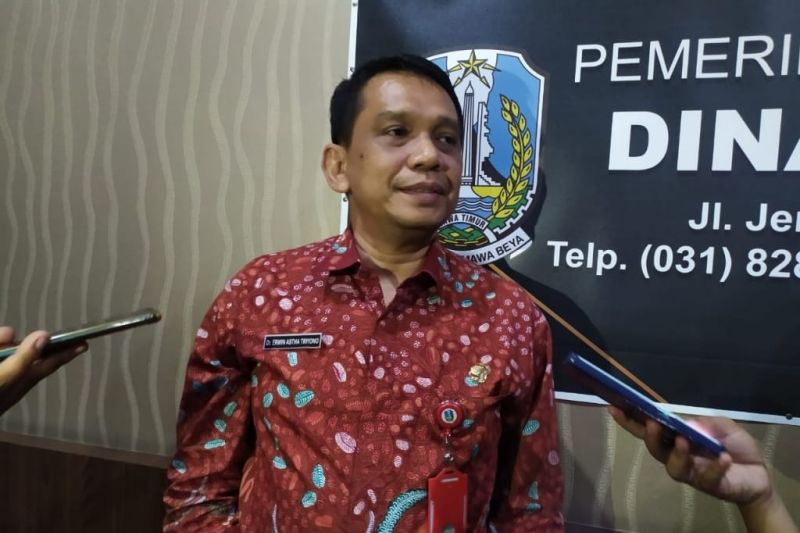The East Java Provincial Health Office (East Java Health Office) recorded 6,145 new HIV patients as of October 2022, with a cumulative case of 84,959 across East Java.
Dr Erwin Astha, head of the East Java Health Office, said of the new cases seen this year, only 23,230 patients received ARV therapy or antiretroviral.
“There is a gap between the number of cases found and those treated with ARVs. This is because many patients die or drop out of treatment,” Dr. Erwin said in his statement on Friday (2/12/2022).
In line with the joint commitment between Indonesia and several other countries to end the AIDS epidemic by 2030, Erwin stressed that he will step up testing and improve HIV service facilities.
Erwin said efforts to find HIV cases continue to be enhanced by involving community participation, particularly through outreach activities led by NGOs.
In addition, the HIV program caters to testing requests for pregnant women, tuberculosis patients, STD patients, patients with symptoms of reduced immunity, and inmates.
“Therefore, we must be able to reduce the incidence of new HIV infections by 90% compared to new infections in 2010, reduce AIDS-related deaths, and eliminate stigma and discrimination against people with HIV,” he explained Erwin.
Meanwhile, to increase access to ARV therapy for people living with HIV (people living with HIV), the East Java provincial government has increased HIV testing service units in centers health care and hospitals throughout East Java. That is, from 1,178 service units in 2021 to 1,380 in 2022.
In addition to this, the number of ARV therapy services will also increase, from 380 service units in 2021 to 420 by September 2022.
Erwin said that in addition to efforts to increase access to testing and treatment, the East Java provincial government has also taken several countermeasures. Among other things, such as conducting outreach activities to key populations (MSM (Men Sex Men), Waria, CSW and IDU, as well as conducting HIV screenings on pregnant women and tuberculosis patients.
“Then give partner notifications to people who have direct contact and are at risk of getting HIV and STIs from people who have been diagnosed with HIV and STIs,” Erwin said.
East Java Kadinkes stressed that to end AIDS in Indonesia in 2030, all parties must be involved. Starting from the ranks of government, private sector, business, academia, media and social community. (Wld/Bill)


